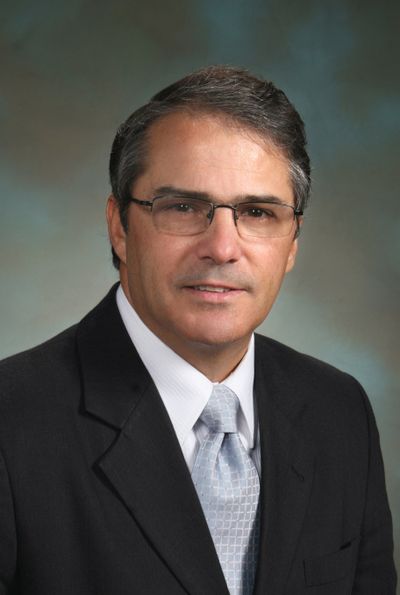State staff aided Owen’s charity
Lobbyists also helped lieutenant governor’s nonprofit

OLYMPIA – For years, Lt. Gov. Brad Owen made the nonprofit Strategies for Youth an extension of his official government duties, even as it paid his wife a salary.
Owen’s office staff used taxpayer-funded time to help conduct the operations of the anti-bullying organization that he founded, according to documents obtained by the Associated Press under state public records laws. The Democrat also worked with lobbyists to help raise money for the nonprofit.
It was an unusual nexus of work, personal and extracurricular life, especially since the nonprofit paid Owen’s wife $25,000 during the span of a few years. The organization also provided his family with benefits such as full-time use of a $33,000 truck.
Owen says he’s always been upfront about how he wanted to use his office as a vehicle for outreach, with the help of the nonprofit. The charity would send him to schools where he would work with children to combat bullying.
Todd Donovan, a professor of political science at Western Washington University, questioned whether office workers should be able to use their state time to work on behalf of a nonprofit – no matter who the nonprofit paid.
“You’re essentially contributing state resources to the nonprofit,” Donovan said.
Last year, an ethics panel determined that a Department of Corrections official may have violated ethics laws when she used state time and resources to further the agenda of three nonprofits, even though she gained no financial benefit and said the work was to benefit the department. That case is ongoing.
Records provide a glimpse into how the Owen nonprofit operated. In one case, his office staff worked in June 2010 to organize a fundraiser with the theme of “Everyday People Doing Extraordinary Things.”
An Owen aide made preparations through his office email to honor two lobbyists with awards during the charity dinner and auction held at Emerald Downs. Another lobbyist served as emcee. Through a fourth lobbyist, AT&T donated $1,000 to reserve a table and a foursome at the accompanying golf tournament, according to documents obtained by the AP.
Owen, a Democrat who presides over the state Senate and is listed as the nonprofit’s president, said he saw no conflict of interest in asking lobbyists to donate to his family’s charity, or in having his staff use state time to work on the nonprofit’s behalf.
“Our goal was to help kids. That’s the goal of my office. That’s the goal of the nonprofit,” Owen said. “The goal wasn’t to make money for Brad Owen or Linda Owen: If we were going to do that, we wouldn’t have had the nonprofit and she would have been working for the private sector.”
Linda Owen was the only person drawing a salary at Strategies for Youth, and her pay accounted for roughly 10 percent of its expenditures.
Brad Owen’s office and the charity signed an agreement to work together and share resources – a contract that Owen said was drafted with the aid of lawyers in the Senate.
In a press release issued through his public office, Owen announced last year that he and his wife were ending Strategies for Youth, in part because of costs and his other work.
Emails from within Owen’s office show that staff spent time sending out fundraising solicitations and event coordination for the nonprofit. Two workers also spent more than 100 work hours at Strategies for Youth events in recent years.
Owen said staff didn’t need to do that work after hours because the office and the nonprofit had created a formal partnership, and he said the charity actually helped defray costs in the office on work that would have otherwise been done with state resources.
Owen, currently seeking re-election against Republican Bill Finkbeiner, initially said his staff did not do fundraising work from the office. After an AP reporter pointed out emails that indicated otherwise, he went to assess the correspondence and said one staff member may have made mistakes by conducting some fundraising activity at the office.
Owen said “a number” of lobbyists contributed to the nonprofit or helped the charity get connected with the appropriate contacts within businesses such as Waste Management and Boeing. He said he knows lobbyists from his job as lieutenant governor, so they were a logical point of contact.
“We got turned down by as many as we got accepting,” Owen said.